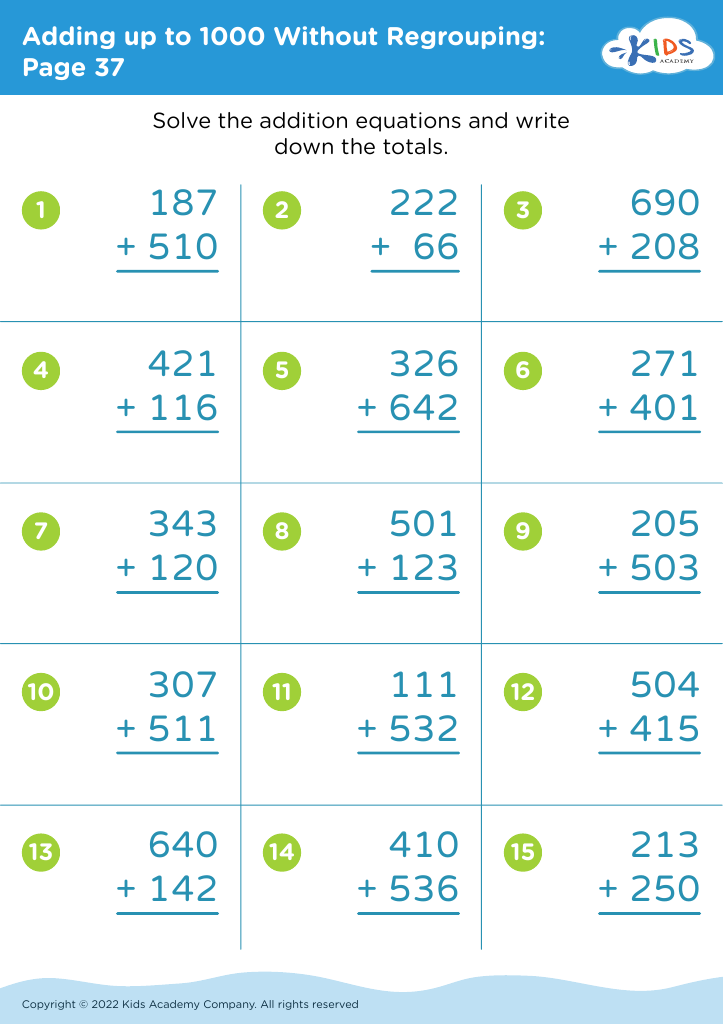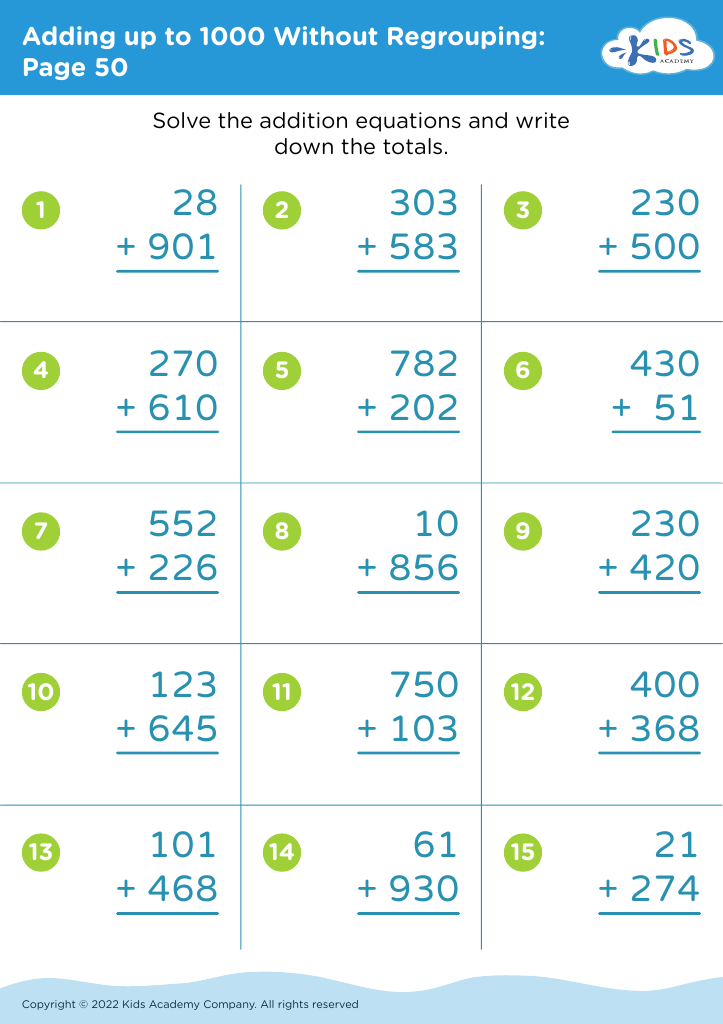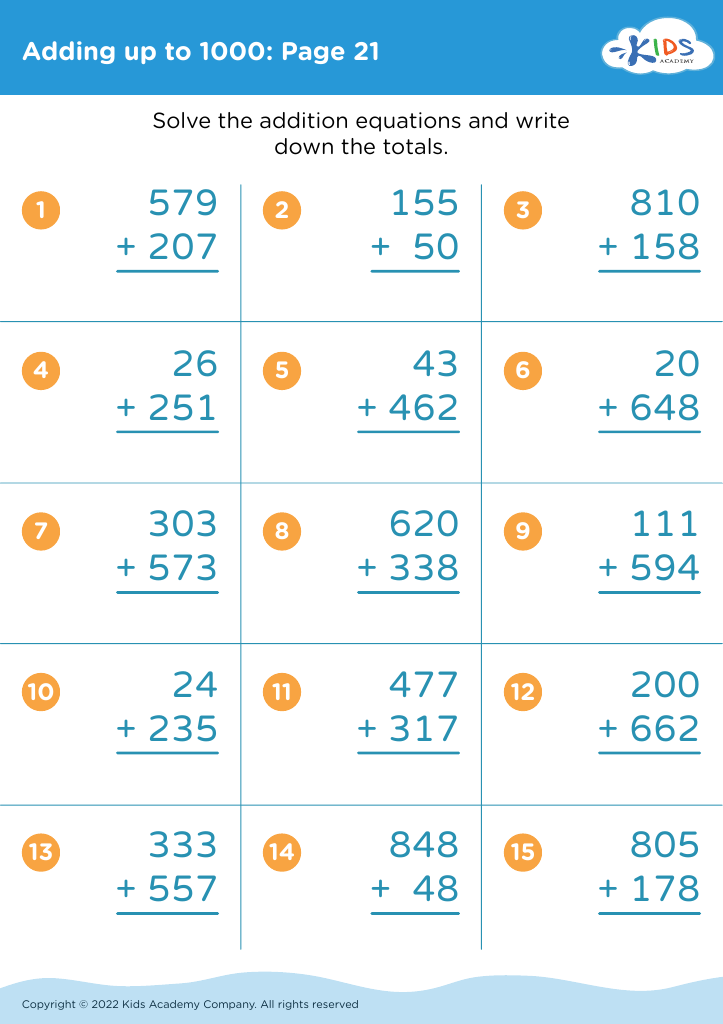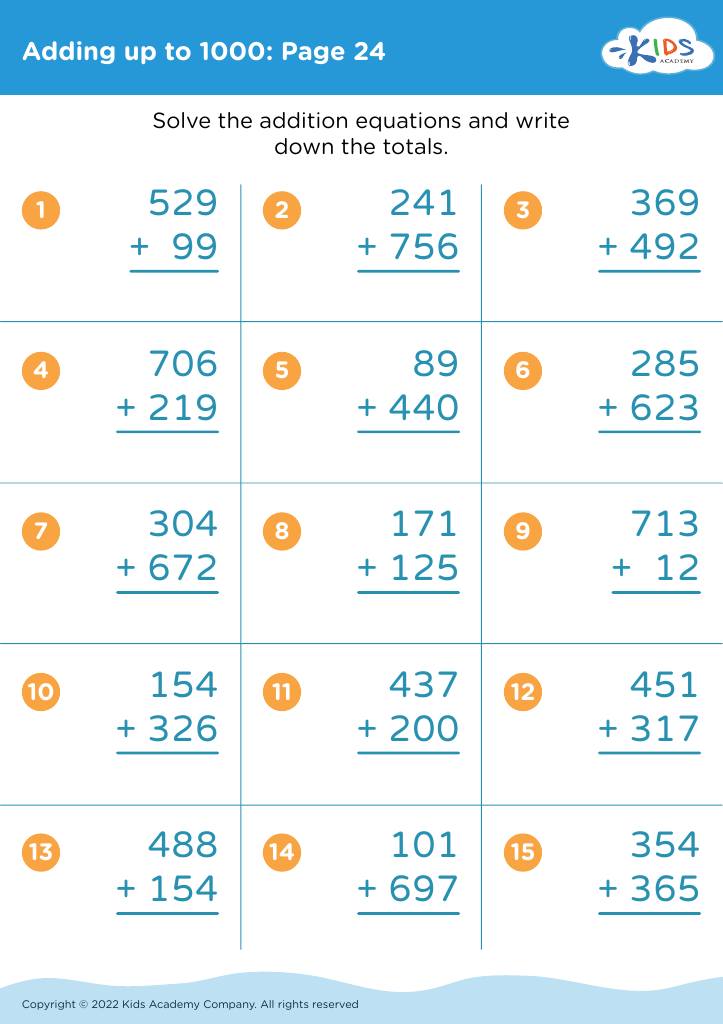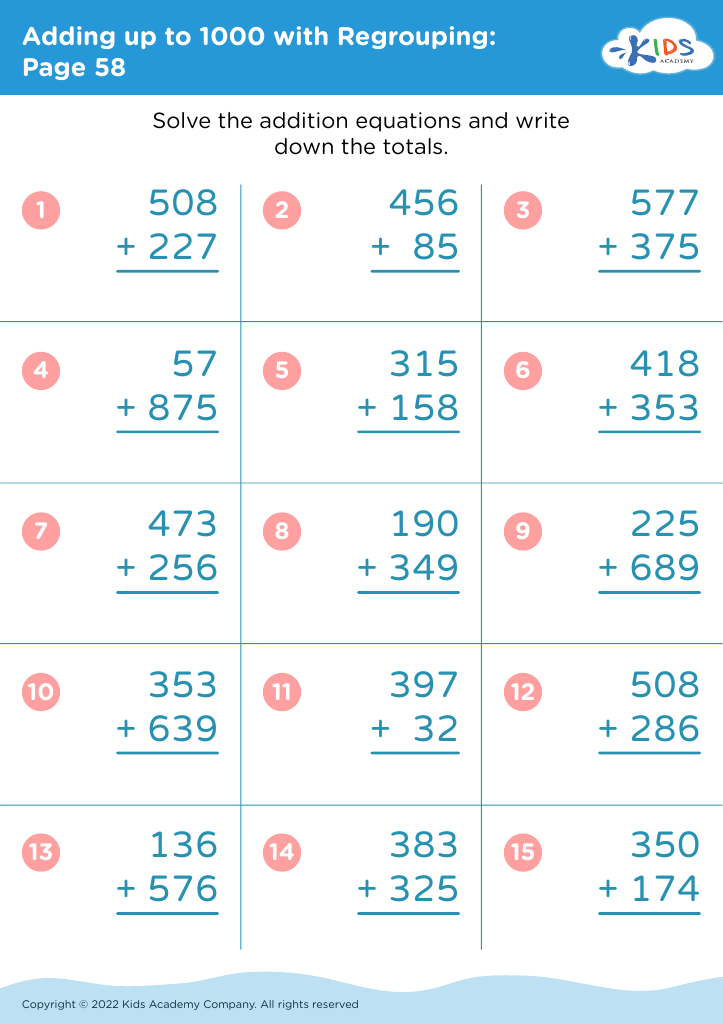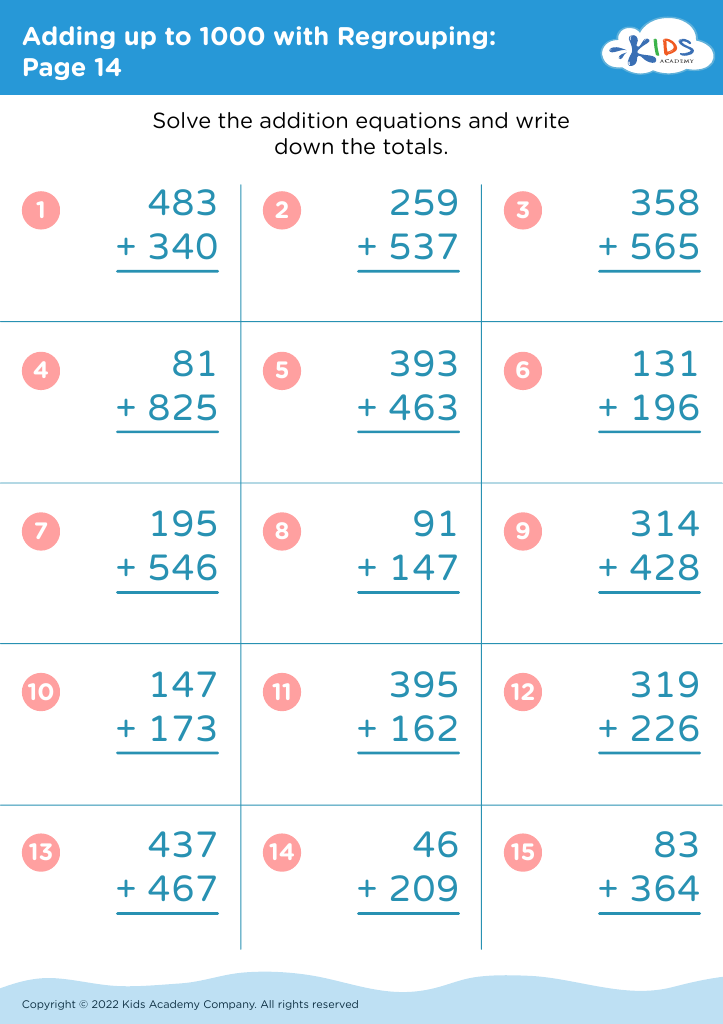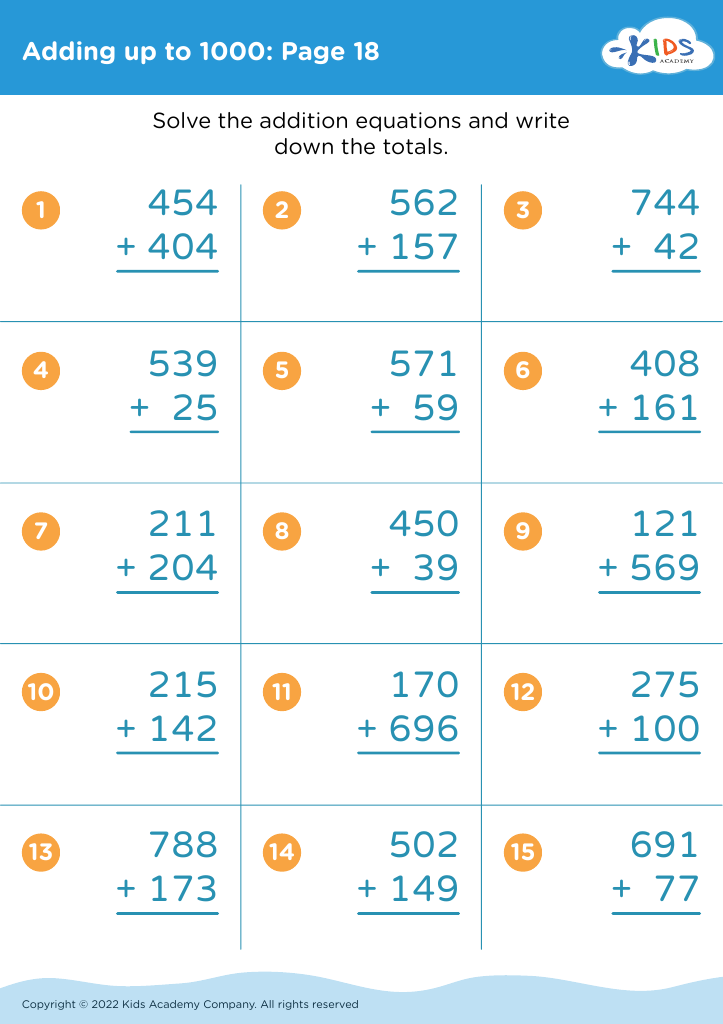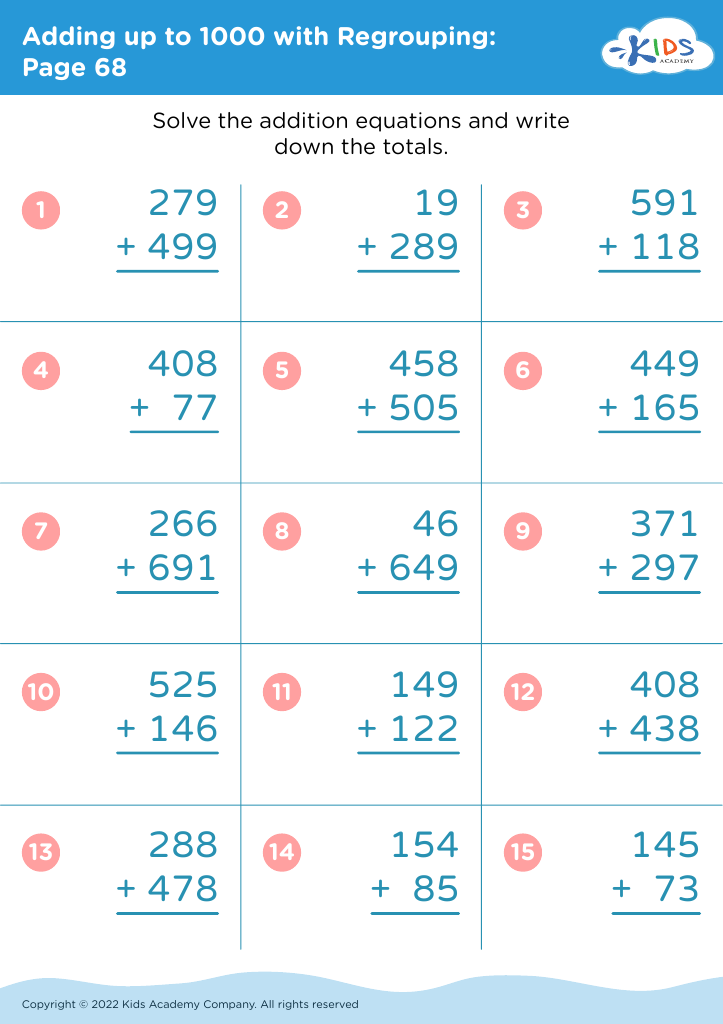Fine Motor Skills Adding up to 1000 Worksheets for Ages 6-7
12 filtered results
-
From - To
Enhance your child's fine motor skills while mastering addition with our "Fine Motor Skills Adding up to 1000 Worksheets" designed specifically for ages 6-7. These engaging worksheets combine math practice with fun activities to improve hand-eye coordination, pencil grip, and scissor skills. Each worksheet offers a variety of interactive exercises that promote both cognitive and motor development, ensuring an enjoyable learning experience. Perfect for home or classroom use, these worksheets are geared towards helping young learners build confidence in counting and addition concepts while sharpening their fine motor abilities. Download now and watch your child's skills soar!
Fine motor skills are essential for children aged 6-7, as they lay the groundwork for various academic and daily life tasks. These skills involve the coordination of small muscles, particularly in the hands and fingers, enabling children to perform precise movements, such as writing, cutting, and buttoning clothing. Parents and teachers should prioritize nurturing fine motor skills as they significantly impact a child's literacy and numeracy development.
For example, proficiency in fine motor tasks is crucial for developing handwriting, influencing written expression and overall communication skills. Furthermore, activities that enhance fine motor skills—such as drawing, building with blocks, or using scissors—can help improve hand-eye coordination, problem-solving abilities, and creativity. These skills also foster independence in daily routines, enhancing self-esteem and confidence as children accomplish tasks without assistance.
Moreover, a strong foundation in fine motor skills contributes to academic success as children progress through their education. Schools increasingly emphasize the importance of these skills, integrating them into curricula. When parents and teachers work together to encourage fine motor development through engaging activities, they can help children build important competencies they will use throughout their educational journey and daily lives. Investing in these skills early on sets the stage for future success.

